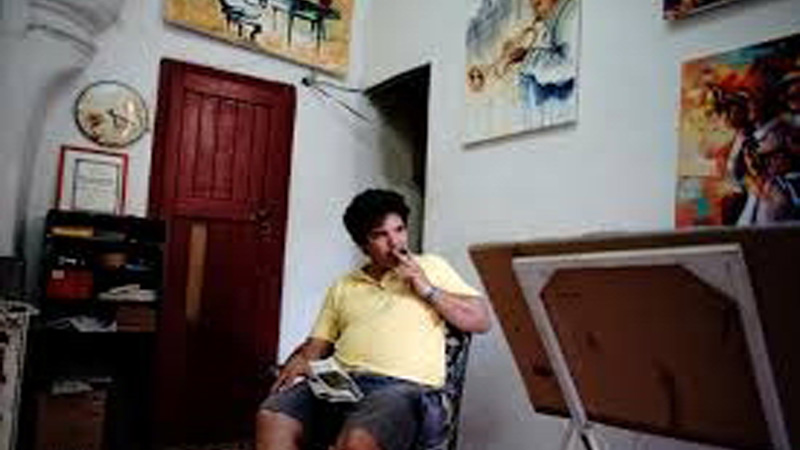
Cuban artists and international rights activists are pushing the government to revise legislation due to take effect in December that they fear will hamper creativity and increase censorship on the Communist-run island. The decree, published in July, bars artists, be they musicians or painters, from “providing their services” in any space open to the public, including private venues, without prior government approval.
It updates a decree redacted before the market reforms launched in 2010 by former President Raul Castro, which required them only to get approval to operate in state-run spaces.
Since then, the government had tolerated artists independently presenting their work in private venues, as part of a broader Cuban economic, social and political opening.
Cuban artists’ greater autonomy, thanks also to increased access to the internet and freedom to travel, led to a blossoming of cultural activity. Independent recording studios and art galleries have burgeoned.
But that autonomy has made it harder for the one-party state to ensure artists are paying taxes – many do not – and to police the cultural sector, which it has promoted heavily since the 1959 revolution.
Some independent artists are worried they will not be able to get state approval due to bureaucratic hurdles and that the decree will cost them their livelihood.
“I never thought of emigrating before but now I am,” said Luis Puerta, who has been sustaining his family of four by privately selling his stylized paintings of jazz musicians.
Others are convinced the decree is destined to silence them. “This is a measure of repression because you won’t get government approval if you are not within the socialist ideology,” said performance artist, sculptor and self-described “artivist” Luis Manuel Otero Alcantara.
In a country that frowns on public dissent, Otero Alcantara has led a rare campaign against the measure, known as Decree 349, by dozens of artists working outside state institutions.
Together they have flooded social media with slogans like “Law that converts art into a crime,” hosted musical and other artistic performances in protest at the decree and sent letters to authorities.
Amnesty International has backed their campaign, saying Decree 349 – one of the first to be signed by President Miguel Diaz-Canel after he took office in April – is a “dystopian prospect” for Cuba’s artists.
Published in Daily Times, November 3rd 2018.
